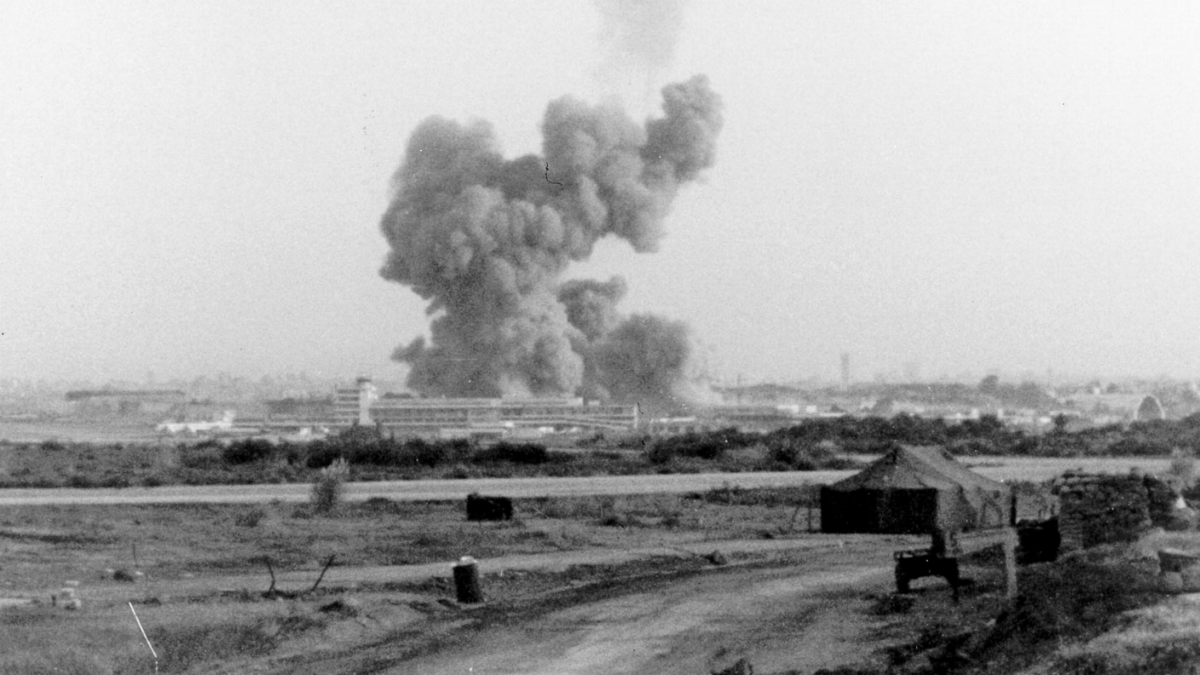Oct. 23 is the 40th anniversary of the Marine Barracks Bombing in Beirut, Lebanon, which killed 241 U.S. Marines and sailors, 58 French paratroopers, and several civilians.
The attack — conducted in the name of Islamic Jihad and perpetrated by the Iranian-led, IRGC-trained forces that would come to be called Hezbollah — consisted of two sequential suicide bombers. U.S. troops were unprepared for the assault, having orders not to chamber rounds into their weapons.
The Beirut bombing is particularly important to remember at this moment when the Biden administration has moved U.S. Naval and Marine assets into the region once again, this time as Hamas and Hezbollah terrorists prosecute a war against Israel.
In 1983, Israel was prosecuting a defensive war against the Palestine Liberation Organization (PLO), which had taken over large swathes of Lebanon and launched a campaign of firing Soviet-provided Katyusha rockets into Northern Israel. The Soviets were targeting Israel as part of their anti-Western, anti-colonial campaign, and the KGB helped create the PLO in 1964 to aid in that effort and flip the narrative from Israel as an underdog surrounded by hostile Arab nations to the “oppressor” of an “indigenous struggle for national liberation.” After the Iranian Revolution in 1979, the Soviets used the PLO to leverage Iran as an asset.
The CIA initially believed they could win the PLO away from the Soviets, and in 1969, began courting Arafat through the head of the PLO’s elite Force 17, Ali Hassan Salameh. Salameh was initially contacted by the CIA’s station chief in Lebanon, Robert Ames. For 10 years, the CIA would meet with Salameh — even taking him and his wife to Disneyland for their honeymoon. This was despite the PLO’s murder of two American diplomats in Khartoum in 1973, and the PLO’s murder of 11 Israelis at the Munich Olympics in 1972.
Then-Secretary of State Henry Kissinger believed the U.S. could simply pay off the PLO and it would not harm Americans in the region. Meanwhile the PLO, through Salameh’s Force 17, taught the Iranian Revolutionary Guard Corps everything it knew about terrorism, including how to conduct attacks like the one that claimed American lives in Beirut.
At the time of the 1983 bombing, U.S. and French forces were part of a multinational force overseeing a ceasefire with the goal of allowing the PLO to withdraw safely from Lebanon and avoid total destruction at the hands of the IDF. In essence, they were holding back their ally from destroying a common enemy.
“It was clearly one of the greatest Western delusions to imagine Arafat as an antidote to Iranian influence and the barrier to the Islamic regime’s terror. He was the benefactor of the former and godfather to the latter,” David Wurmser, a senior analyst at the Center for Security Policy, recently wrote.
Robert Ames was one of the Americans killed in the 1983 attack.
Based on its prior behavior, there is every reason to believe the Biden administration — despite its claims to the contrary — moved U.S. forces into the region not to help Israel annihilate the Palestinian terrorists who massacred innocent civilians but to prevent Israel from finally eliminating the source of the attacks against their people. The Biden administration is more interested in sending U.S. troops to act as human shields for the terrorists with which it is playing footsie, to preserve its geopolitical and diplomatic folly with Iran, than defeating terrorists.
Since coming into office, the Biden administration has worked tirelessly to assuage the Iranian regime, transferring billions of dollars, removing their Houthi allies in Yemen from terrorism designation, and transferring millions to Hamas-ruled Gaza, knowing full well it would go to the terrorists who rule the Gaza Strip. U.S. troops stationed in Syria and Iraq have already faced attacks from drones and rockets. The U.S. has thus far failed to respond.
Iran continues its 40-year history of attacking U.S. troops (including responsibility for 1 in 6 U.S. casualties in the second Iraq war), taking American citizens hostage, and displaying a willingness to attack Americans even on U.S. soil.
While the U.S. has apparently learned nothing from the disastrous consequences of the 1983 Beirut Barracks bombing, our enemies have learned much. Perhaps most importantly they have learned there is no slaughter of Americans or global humiliation that will prevent America’s foreign policy establishment from trying to advance their utopian Middle East schemes.









